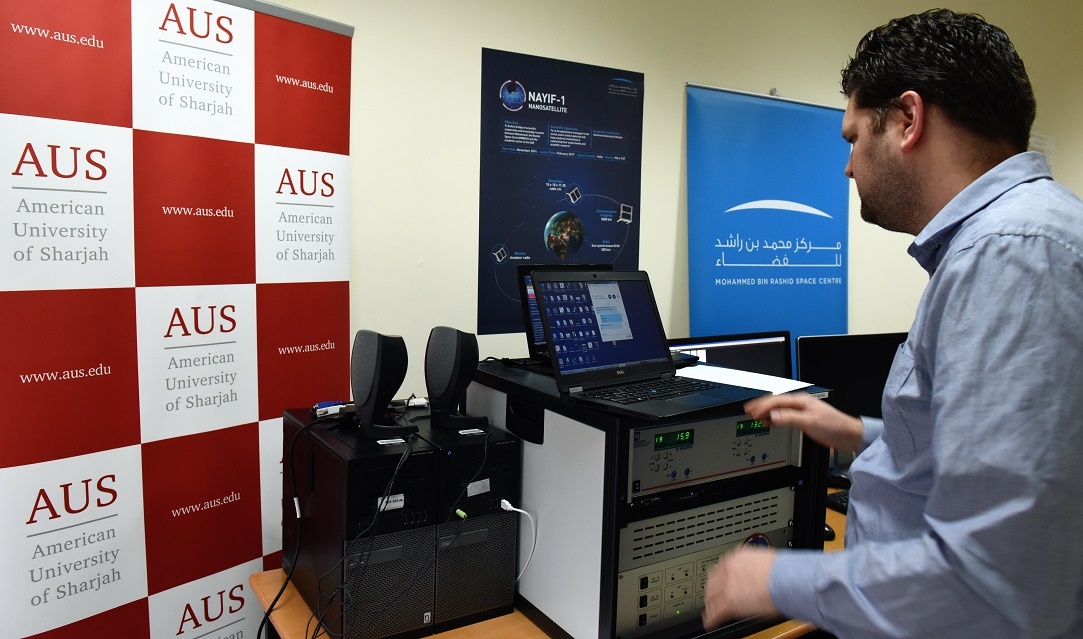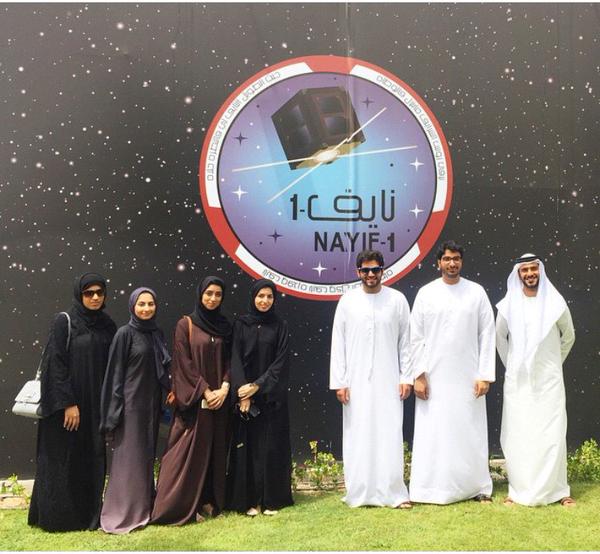Nayif-1 (EO-88) was launched at 03:58 UTC on February 15, 2017, on a PSLV launcher from India. It was part of a world record launch as the C37 flight carried 104 spacecraft into orbit.
The transmitter was autonomously activated around 04:47 UTC and the first signals were received and decoded a few minutes later by KB6LTY and within a few hours more than 250 stations around the world had submitted telemetry reports to the Data Warehouse.
After more than 27500 orbits of the earth, the spacecraft continues to function nominally. It switches between high power telemetry when in daylight to low power telemetry and transponder when in eclipse.
The mission was developed by the Mohammed bin Rashid Space Centre (MBRSC) and American University of Sharjah (AUS). The UAE’s first Nanosatellite was developed by Emirati engineering students from AUS under the supervision of a team of engineers and specialists from MBRSC within the framework of a partnership between the two entities, aiming to provide hands-on experience to engineering students on satellite manufacturing.


